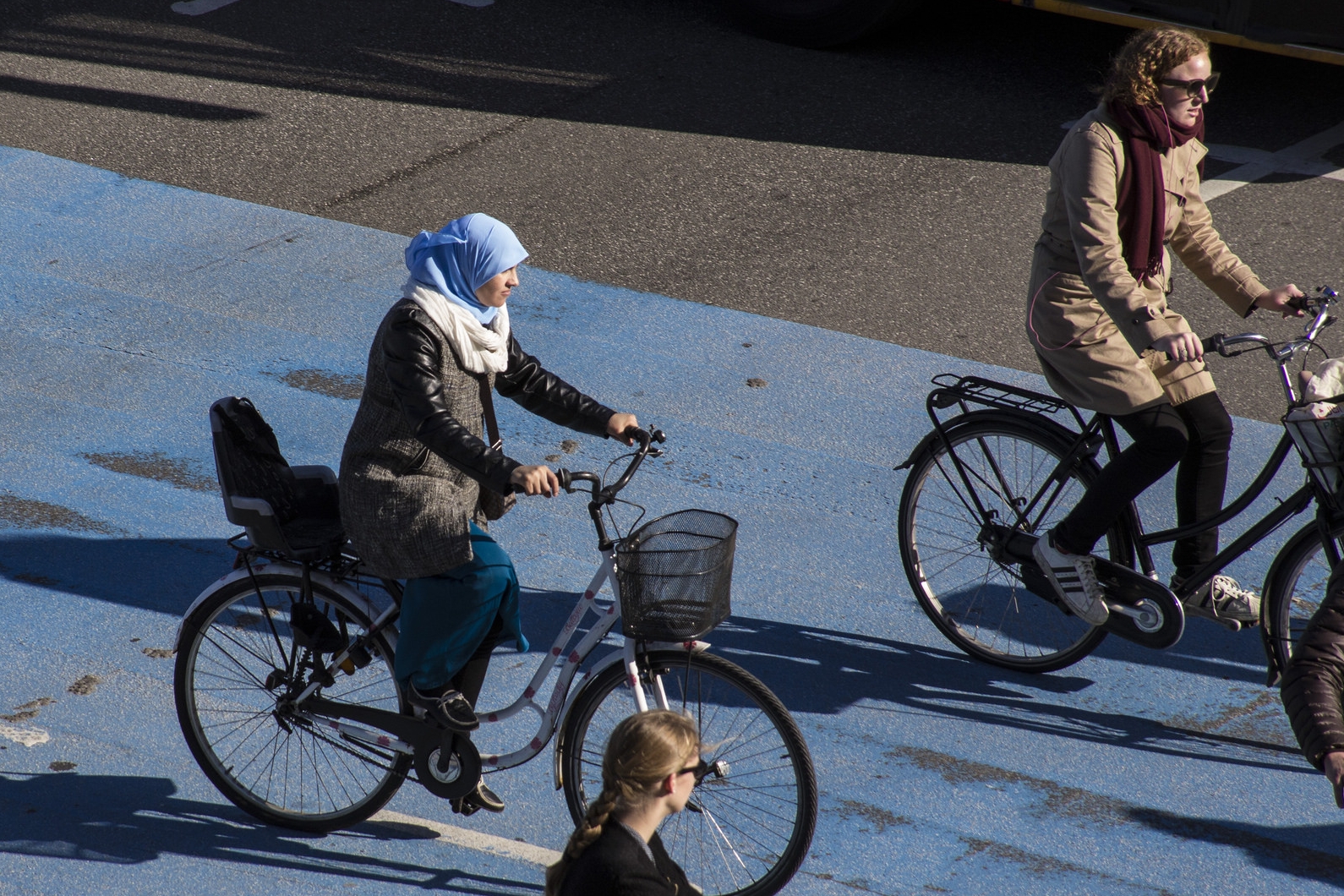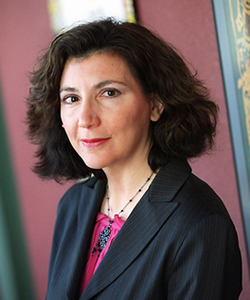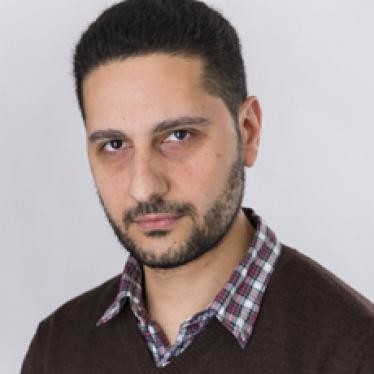Six countries in Europe have now passed nationwide or partial bans on face-veils, and others have legislation pending for additional bans. Speaking critically of either the bans or the Muslim practice of veiling engenders a firestorm of debate, as former Mayor of London and Secretary of State for Foreign and Commonwealth Affairs Boris Johnson did with an article in the Telegraph denouncing the ban in Denmark, while also bluntly criticizing in demeaning fashion the practice of covering the face.
Women riding in Copenhagen, Denmark. Photo: Flickr/Cycle Chic Copenhagen_55.
The response to the controversy has largely focused on questions of free speech, with the Equality and Human Rights Commission (EHRC) labeling the remarks as “inflammatory and divisive” but not within its jurisdiction to prosecute.
Yet, what of the more fundamental question about the public expression of religious belief? Is it appropriate, as the European Court of Human Rights said in its 2014 ruling in S.A.S vs. France, that veiling must be restricted in favor of the principle of “living together” and promoting “tolerance and broadmindedness without which there is no democratic society.”
In this series on Cornerstone Forum, we asked scholars to examine what the implications are of religious freedom for protecting the right to public expressions of faith, even those expressions which may seem to resist cultural assimilation.
THE RFI BLOG

Is Egypt’s Government Trying To Take Over Christianity’s Most Important Monastery?

Does Southeast Asia Lead the World in Human Flourishing?

RFI Leads Training Session on Religious Freedom Law and Policy for U.S. Army War College

Oral Argument in Charter School Case Highlights Unconstitutional Motives Behind OK Attorney General’s Establishment Clause Claim

Largest Longitudinal Study of Human Flourishing Ever Shows Religion’s Importance
CORNERSTONE FORUM

Reaffirming Religious Freedom: Bridging U.S. Advocacy and Iraq’s Constitutional Framework

Political Polarization, Same-Sex Marriage and Religious Liberty

Bridging the Gap Between International Efforts and Local Realities: Advancing Religious Freedom in the MENA Region

Challenges to Religious Freedom in Iraq and the Critical Need for Action





Kareem P.A. McDonald
Kareem P.A. McDonald
The target of the new law is the burqa and niqab but, already the Danish People’s Party have turned their attention to the head scarf, launching a new poster campaign that tells women to “throw of the headscarf and become part of Denmark.” Given the rise in religious apathy and intolerance towards religion generally, who knows what will come next; tomorrow the cross or the yarmulke could be the next target. This is why it is important now, more than ever, for all freedom-loving people to come together, to stand together and oppose this unnecessary, counterproductive and hypocritical law.
Read More →
Kareem P.A. McDonald